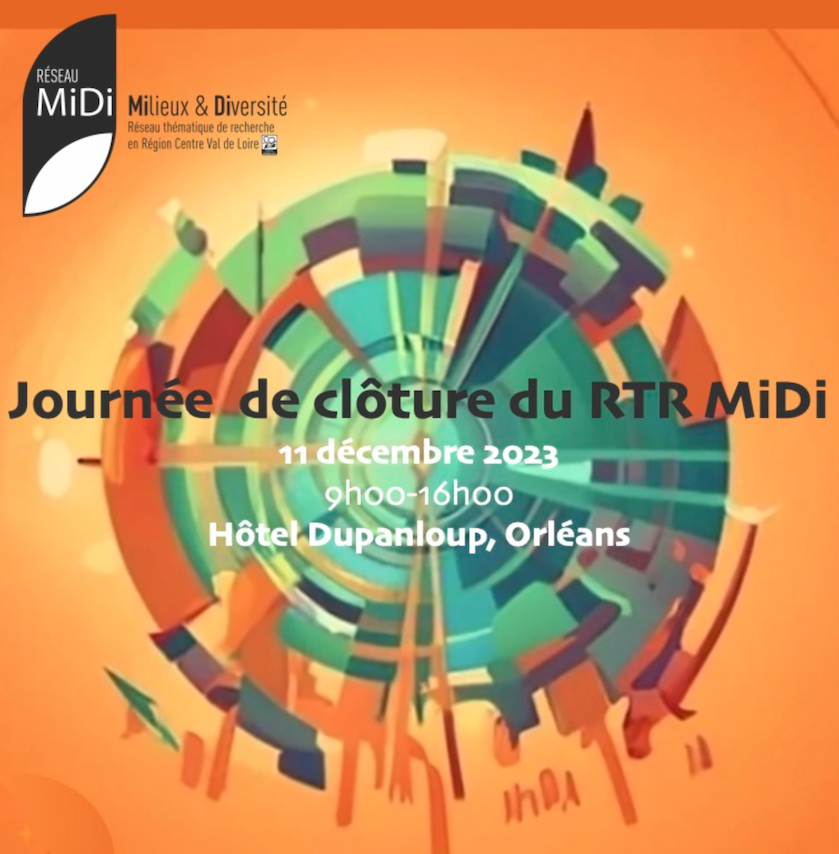
Catégorie : actu


En juillet dernier, le réseau MiDi a réuni une douzaine de ses membres pour une matinée d’ateliers. Cette matinée fait suite à la journée du 24 mars 2023, où une première réflexion avait été amorcée lors de la Journée Annuelle du réseau. Dans la continuité de cette journée, un questionnaire en ligne, portant sur la structuration, les thématiques et les actions du réseau, avait ensuite été proposé à l’ensemble des membres du RTR MiDi. Les ateliers proposés lors de la demi-journée de juillet, étaient quant à eux davantage centrés sur la définition d’un futur périmètre scientifique et technique pour le réseau. Nous vous invitons à consulter cette synthèse : SYNTHESE ATELIERS MiDi et à rejoindre notre futur groupe de travail pour travailler sur la suite du réseau en nous contactant à l’adresse suivante : rtrmidi@univ-tours.fr

En mars 2023, une première réflexion autour de la suite du RTR MiDi a été amorcée lors de la Journée Annuel du réseau. Afin de poursuivre ces échanges ; le RTR MiDi propose, le 6 juillet prochain, à l’ensemble de ses membres, une demie-journée d’ateliers pour réfléchir à de futurs thématiques et objets pour le réseau. Inscription ouverte jusqu’au 20 juin
Nous espérons vous accueillir nombreux à cet évènement !
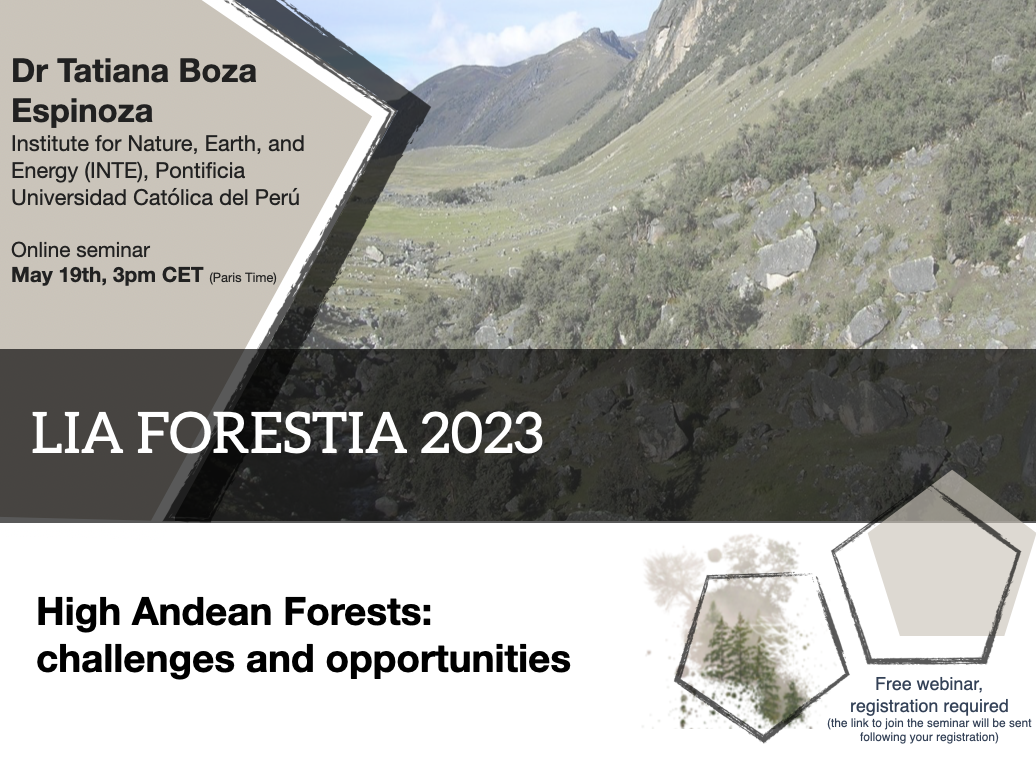
LIA FORESTIA web seminars 2023
SEMINAR # 3
« High Andean Forests: challenges and opportunities »
Tatiana Boza Espinoza
Institute for Nature, Earth, and Energy (INTE), Pontificia Universidad Católica del Perú
May 19th, 3pm (CET/Paris time)
Abstract
High Andean forests are biodiversity hotspots that play an important role in the provisioning of vital ecosystem services such as regulation of the water cycle, formation and conservation of soils, support of biodiversity, among others. Polylepis is the dominant genus in the high Andean forest vegetation and they have a crucial ecological role. Polylepis forests harbor unique biodiversity, including several highly specialized, often range-restricted and threatened bird species. However, these forests are highly endangered by climate change, habitat fragmentation and anthropogenic disturbances, and many of their biological aspects are still unknow. It has been estimated that over 90% of Polylepis forests have already been lost in Peru and Bolivia. The high Andes are expected to undergo severe changes in the coming decades because of on-going land-use change and climatic change likely threatening Polylepis forests even more. Polylepis forests have a low ability to colonize dens grasslands and low seed dispersal ability, severely limiting the ability of the forest to spread and to track climatic conditions. As a result of all the above, Polylepis forests have been listed as one of the most endangered woodlands ecosystems in the world and the conservation of the remaining forests stands has given high priority. Taking a critical look at the limitations of current knowledge of the biological aspects of Polylepis forests and proposing a research agenda to fill the knowledge gaps will help to the conservation action of these forests.
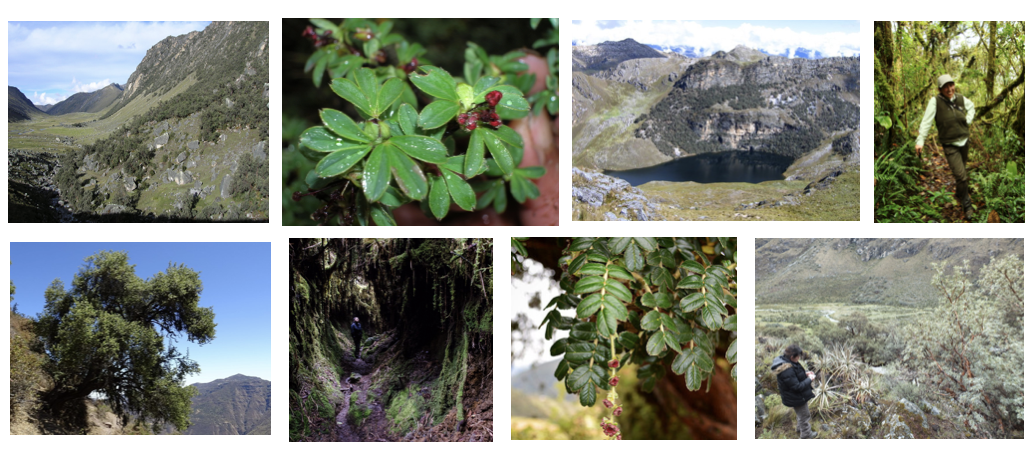
Free registration following this link : LIA FORESTIA 2023 – seminar #3
Registration required to receive the link to join the seminar
MiDi is a interdisciplinary Research Thematic Network, focused on biodiversity and habitats and funded by the Centre-Val de Loire Region. The network aims to promote studies in multiple fields of BioGeoSciences and Human and Social Sciences in relation to global changes.
This conference is organised in partnership with Le Studium (Institute for Advanced Studies).
contact: rtrmidi@univ-tours.fr
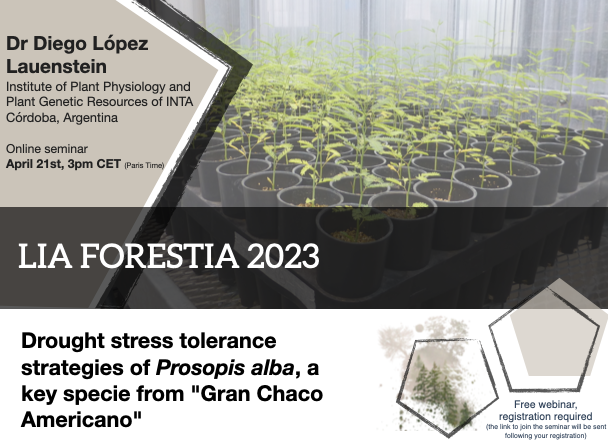
LIA FORESTIA web seminars 2023
SEMINAR # 2
« Drought stress tolerance strategies of Prosopis alba, a key specie from « Gran Chaco Americano »
Diego López Lauenstein,
Institute of Plant Physiology and Plant Genetic Resources of INTA, Córdoba, Argentina
April 21st, 3pm (CET/Paris time)
Abstract
Drought is one of the major abiotic stresses that restrict terrestrial plant growth. Predicted climate change in subtropical regions raises concerns about the ability of forest ecosystems to cope with longer, more severe and unpredictable summer drought periods.
The Gran Chaco Americano extends into tropical and temperate zones and is one of the major wooded grasslands in South America, being currently one of the ecosystems with the highest deforestation rates of the world. Among important Chaco tree species, Prosopis spp, Algarrobos (Mesquite), are well-known to be tolerant to drought, having a xeromorphic leaf structure and an adapted root structure that can cope with temporal and spatial variability in soil water availability. In particular, Prosopis alba is the most widely distributed species of the genus, grows throughout the semi-arid and humid Chaco region of Argentina, Bolivia and Paraguay, covering areas from 500 to 1200 mm of average annual precipitation of summer concentration.
P. alba is distributed in contrasting environments, and we expect different strategies towards drought stress and even adaptations to particular local conditions. Our objective was to evaluate the strategies of Prosopis alba to tolerate drought stress and to identify if these strategies are under natural selection. By combining a macroscopic characterization (yellowing and senescence) after water deprivation in a controlled common garden experiment with open pollinated families and the distribution of neutral genetic variation (microsatellites) between and within P. alba populations we attempt to address the following questions: Do the different P. alba provenances growing in contrasting environments with respect to precipitation and temperature have different strategies to tolerate stress? Are there genetic differences between these provenances that may indicate adaptive processes?
In the context of climate change, information regarding Prosopis alba provenances tolerant to drought becomes more important, particularly for forest management and future (re)forestation.

Free registration following this link : LIA FORESTIA 2023 – seminar #2
Registration required to receive the link to join the seminar
MiDi is a interdisciplinary Research Thematic Network, focused on biodiversity and habitats and funded by the Centre-Val de Loire Region. The network aims to promote studies in multiple fields of BioGeoSciences and Human and Social Sciences in relation to global changes.
This conference is organised in partnership with Le Studium (Institute for Advanced Studies).
contact: rtrmidi@univ-tours.fr
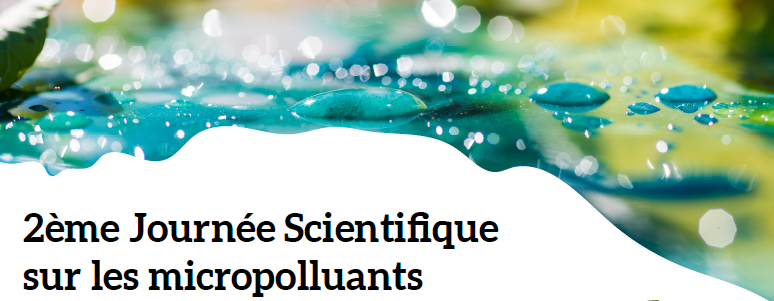
Pour la deuxième année consécutive, le RTR MiDi, à l’initiative de Florian Guillou, vous propose une nouvelle journée scientifique sur le thème des micropolluants.
Inscription obligatoire via ce lien : INSCRIPTION
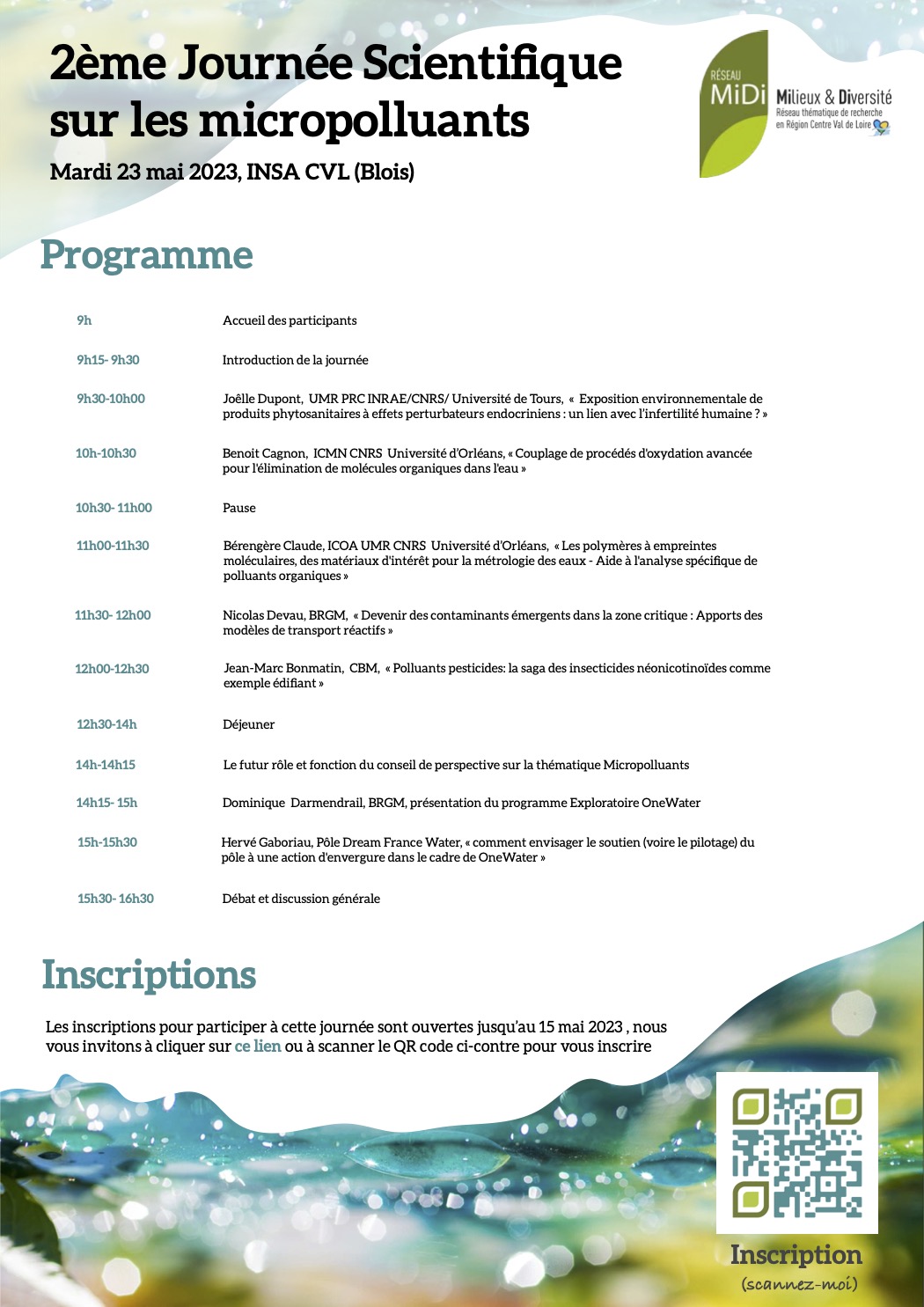

Vous obtiendrez un financement pour la gratification de stage, avec une convention de stage portée par l’Université de Tours (organisme porteur du RTR MiDi) et avec un avenant de détachement dans votre laboratoire de recherche Vous enrichirez vos collaborations avec les membres du réseau et apporterez de la visibilité au projet du stage et aux projets de recherche associés.
Quelles sont les conditions pouvant permettre de bénéficier d’un soutien du RTR MiDi pour la gratification d’un stage de Master 2 ?
Pour demander une gratification de stage de Master 2, vous devez expliquer comment celui-ci contribuera à la dynamique de la recherche sur un/des thème(s) soutenu(s) par le Réseau Thématique de Recherche MiDi, en remplissant les conditions suivantes :
- Le stage doit porter sur une thématique qui doit s’inscrire dans au moins un des axes de recherche et au moins un objet thématique du réseau (les objets thématiques : « Eau », « Sol », « Forêt », et « Ville »)
- Le stage doit associer au moins une des unités de recherche affiliées au RTR MiDi et s’inscrire dans un projet financé, ou dans la préparation d’un projet de recherche. Ceux qui associeront des encadrants de plusieurs unités de recherche seront privilégiés.
- Le stage devra durer entre 3 et 6 mois
Engagements du demandeur/Maitre de Stage Le demandeur-Maitre de stage s’engage à :
- Transmettre le rapport de stage final (pour diffusion sur le site du RTR si possible)
- Faire une restitution du stage lors d’une manifestation du réseau si possible
- Apposer le logo du RTR MiDi et de la Région Centre-Val de Loire sur tout support de communication relatif au stage et citer (ou faire figurer sur le diaporama) le soutien par MiDi lors de communications orales.
Quand et Comment déposer sa demande ?
- La demande et l’envoi de ce formulaire dûment rempli sont à soumettre au RTR MiDi à l’adresse: rtrmidi@univ-tours.fr
- Formulaire téléchargeable : Formulaire Demande de gratification Stage M2 MiDi_NOM_PRENOM
- Dates :
- Pour les stages 2023 : veuillez remplir et renvoyer le formulaire avant le 10 Novembre 2022. (CLOS)
- Les retours se feront par mail à partir du 16 Novembre 2022.

